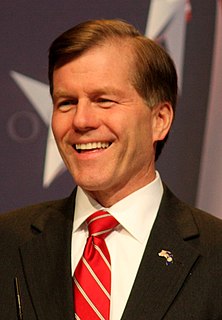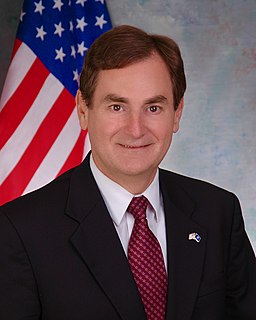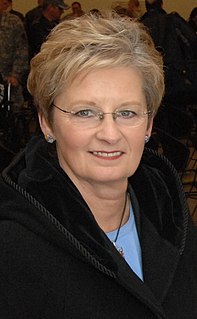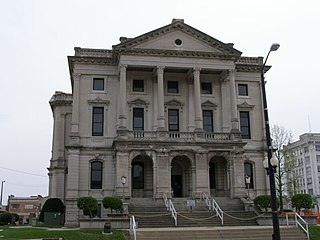
United States gubernatorial elections were held in 12 states and two territories. Of the eight Democratic and four Republican seats contested, only that of North Carolina changed party hands, giving the Republicans a net gain of one governorship. These elections coincided with the presidential election on November 6, 2012.

The Massachusetts general election, 2010 was held on November 2, 2010 throughout Massachusetts. Primary elections took place on September 14, 2010.

Elections were held in Indiana on Tuesday, November 2, 2010. Primary elections were held on May 4, 2010.

The Ohio general elections, 2010 were held on November 2, 2010 throughout Ohio. Primary elections took place on May 4, 2010.

The 2012 United States Senate election in Indiana took place on November 6, 2012, concurrently with the U.S. presidential election as well as other elections to the United States Senate and House of Representatives and various state and local elections.

The 2012 Indiana gubernatorial election took place on November 6, 2012. Incumbent governor Mitch Daniels was term-limited and unable to seek a third term. The Republican candidate, Congressman Mike Pence; the Democratic candidate, former Speaker of the Indiana House of Representatives John R. Gregg; and the Libertarian candidate, youth mentor, small business owner and reality TV personality, Rupert Boneham, were all unopposed in their respective primaries or conventions and contested the general election.

The 2018 United States Senate elections were held on November 6, 2018. Thirty-three of the 100 seats were contested in regular elections while two others were contested in special elections due to Senate vacancies in Minnesota and Mississippi. The winners were elected to six-year terms running from January 3, 2019, to January 3, 2025. Senate Democrats had 26 seats up for election while Senate Republicans had nine seats up for election.

A general election was held in the U.S. state of Minnesota on November 4, 2014. All of Minnesota's executive officers were up for election as well as all the seats in the Minnesota House of Representatives, several state judicial seats, a United States Senate seat, all of Minnesota's eight seats in the United States House of Representatives, and several seats for local offices. A primary election was held on August 12, 2014, to nominate major political party candidates for partisan offices and candidates for nonpartisan offices.

The Ohio general elections, 2014 were held on November 4, 2014 throughout Ohio, with polls opened between 6:30AM and 7:30PM. The close of registration for electors in the primary election was April 7, 2014, and the primary election day took place on May 6, 2014.

A general election was held in the U.S. state of Arkansas on November 4, 2014. All of Arkansas' executive officers were up for election as well as a United States Senate seat, and all of Arkansas' four seats in the United States House of Representatives. Primary elections were held on May 20, 2014 for offices that need to nominate candidates. Primary runoffs, necessary if no candidate wins a majority of the vote, were held on June 10, 2014.

A general election was held in the U.S. state of Colorado on November 4, 2014. All of Colorado's executive officers were up for election as well as a United States Senate seat and all of Colorado's seven seats in the United States House of Representatives. Primary elections were held on June 24, 2014.

The 2016 Indiana gubernatorial election was held on November 8, 2016, to elect the Governor and Lieutenant Governor of Indiana, concurrently with the 2016 U.S. presidential election as well as elections to the United States Senate and elections to the United States House of Representatives and various state and local elections. The primaries were held on May 3, 2016. Republican Lieutenant Governor Eric Holcomb won the race with 51.4% of the vote.

A general election was held in the U.S. state of Delaware on November 4, 2014. Half of Delaware's executive officers were up for election as well as a United States Senate seat and Delaware's at-large seat in the United States House of Representatives. Primary elections were held on September 9, 2014.

A general election was held in the U.S. state of Rhode Island on November 4, 2014. All of Rhode Island's executive officers went up for election as well as a United States Senate seat and both of Rhode Island's two seats in the United States House of Representatives. Primary elections were held on September 9, 2014.

The 2016 United States House of Representatives elections in Michigan were held on November 8, 2016, to elect the 14 U.S. Representatives from the state of Michigan, one from each of the state's 14 congressional districts. The elections coincided with the 2016 U.S. presidential election, as well as other elections to the House of Representatives, elections to the United States Senate in 33 other states and various state and local elections. The deadline for candidates to file for the August 2 primary election was April 19.
The North Carolina Council of State elections of 2016 were held on November 8, 2016 to select the ten officers of the North Carolina Council of State. This elections coincided with the presidential election, elections to the House of Representatives, elections to the Senate and state elections to the General Assembly and judiciary. Primary elections were held March 15.

A general election was held in the U.S. state of Vermont on November 8, 2016. All of Vermont's executive officers were up for election as well as Vermont's Class III Senate seat and at-large seat in the United States House of Representatives. Primary elections were held on August 9, 2016.

A general election was held in the U.S. state of Indiana on November 6, 2018. Three of Indiana's executive offices were up for election, as well as a United States Senate seat and all of Indiana's nine seats in the United States House of Representatives.

A general election was held in the U.S. state of Vermont on November 6, 2018. All of Vermont's executive officers were up for election as well as Vermont's Class I Senate seat and at-large seat in the United States House of Representatives. Primary elections were held on August 14, 2018.
Kelly Mitchell is the current Indiana State Treasurer. She was elected on November 4, 2014. She took office early on November 18, 2014. She replaced interim Treasurer, Daniel Huge, who took over after Richard Mourdock resigned. Mitchell was an at-large delegate to the 2016 Republican National Convention from Indiana. All 57 delegates from Indiana were bound by state party rules to support Donald Trump at the convention.























